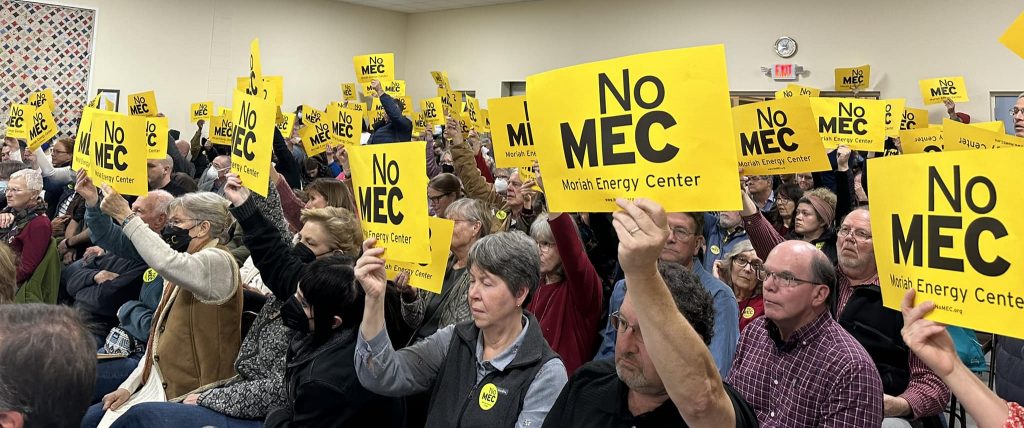Mercury Proposal Receives Support, Opposition
This spring, the U.S. Environmental Protection Agency proposed a rule that would reduce mercury, particulate matter and sulfur dioxide emissions from coal plants. According to the agency, the proposed rule would save an estimated 17,000 American lives a year beginning in 2015 and prevent 120,000 cases of childhood asthma.
A campaign motivated by environmental organizations across the country generated more than 600,000 public comments supporting EPA rules to restrict mercury emissions. A final decision on the rule is due from the EPA in November.
Despite the enormous benefits to public health and overwhelming public support, the House of Representatives recently passed the TRAIN Act to delay these rules for a minimum of five years. Many in Senate leadership vowed to stop the bill, and President Obama threatened to veto the TRAIN Act should it pass Congress.
Blair Mountain Community Fights to Keep Mining History Above Ground
The Blair Mountain Community Center and Museum recently opened just two miles from the historic battlefield site of the 1921 coal miner labor uprising. The center is a gathering place for those interested in preserving the history of this momentous event and features artifacts and documents concerning the Battle of Blair Mountain.
Members of the community are also calling for the West Virginia Department of Environmental Protection to seriously study the impacts of the Camp Branch surface mine permit as the strip mining could destroy one of the most historically significant portions of the battlefield.
Coal-fired Power Plants Can Reduce Pollution and Meet Electricity Demand
A study by the Federal Energy Regulatory Commission found that American coal-fired power plants can follow EPA pollution control regulations and meet the demand of electricity for U.S. homes and industries. One member of the commission noted that the country could retire aging, dirtier coal-fired power plants to reduce pollution emissions.
Newsbites from Coal County
The People Versus TVA: The trial to determine whether the Tennessee Valley Authority should pay property owners to settle damages for TVA’s 2008 coal ash spill in Roan County, Tenn. (called “one of the worst environmental disasters of its kind” by the EPA) began Sept. 15. The disaster is expected to cost $1.2 billion dollars to clean up.
News That’s So Fit to Print, We Can’t: Groups of neighbors in and around Rawl, W.Va. recently reached a settlement with Massey Energy (not long ago acquired by Alpha Natural Resources for $7.1 billion dollars) in two separate lawsuits alleging pollution of ground water resulting in serious illness. While the details of the settlements are private, one of the lawsuits was reportedly settled for $35 million dollars.
Taxpayers Secure Right to Clean Up Pollution Abandoned by Past Coal Profits: The West Virginia Department of Environmental Protection may be required to more thoroughly treat polluted water from more than 200 abandoned mine sites after a lawsuit was reopened by the the West Virginia Highlands Conservancy.
EPA: We Want Your Thoughts on Water Protections: The EPA extended the public comment period for proposed regulations governing water cooling intakes for industrial processes such as electricity generation and wood pulp processing. The proposed statutes intend to safeguard aquatic lifeforms, fisheries and higher order systems that depend on these resources.
EPA Offers $450 Million to Put Coal Carbon Back In the Ground: The EPA awarded $450 million dollars to create a carbon capture and sequestration system for a Texas coal-fired power plant after American Electric Power walked away from a similar project in West Virginia. The Texas power plant plans to store 90 percent of the carbon it currently releases to the atmosphere in abandoned oil wells.
Bills on the Hill
As we reported in the last issue of The Voice, fossil fuel advocates in Congress are aggressively pushing a number of provisions that curtail protections for air, water and human health. Below are updates on each of the bills.
The Clean Water Cooperative Federalism Act, H.R. 2018 (Mica R-FL): Undermines the EPA’s ability to enforce the Clean Water Act and puts water quality control in the hands of individual states. It passed the House in July, and awaits action in the Senate ,where it has limited support.
Coal Residuals Reuse and Management Act of 2011, H.R. 2273 (McKinley R-WV): Prohibits strong regulation of toxic coal ash. It passed the Energy and Commerce Committee in Sept. and is expected to come to a vote on the House floor in October or November.
Transparency in Regulatory Analysis of Impacts on the Nation Act of 2011 (TRAIN Act), H.R. 2401 (Sullivan R-OK): Delays public health protections regarding emissions from coal-fired power plants. The bill passed the House Sept. 23 by a vote of 249-169 and is awaiting action in the Senate.
American Alternative Fuels Act of 2011, H.R. 2036 (Griffith R-VA): Allows the military to buy fuels such as liquid coal even though current law forbids purchasing alternative fuels that emit more carbon pollution than conventional fuels do. The Defense Department opposes this rider. Update pending
Energy and Water, Homeland Security, Agriculture Approps (HR 2354, HR 2017 HR 2112): These bills would defund the EPA’s ability to redefine “waters of the United States,” and block funds for both the Departments of Agriculture and Homeland Security’s climate adaptation program. Update pending.
Interior and Environment Appropriations Act (H.R. 2584): This bill would gut essential provisions in the Endangered Species Act, Clean Water Act and Clean Air Act, and limits public protections from toxic coal ash, mountaintop removal waste, mercury, carbon dioxide and soot, among other things. Update pending

Leave a comment
Your email address will not be published. Required fields are marked *




